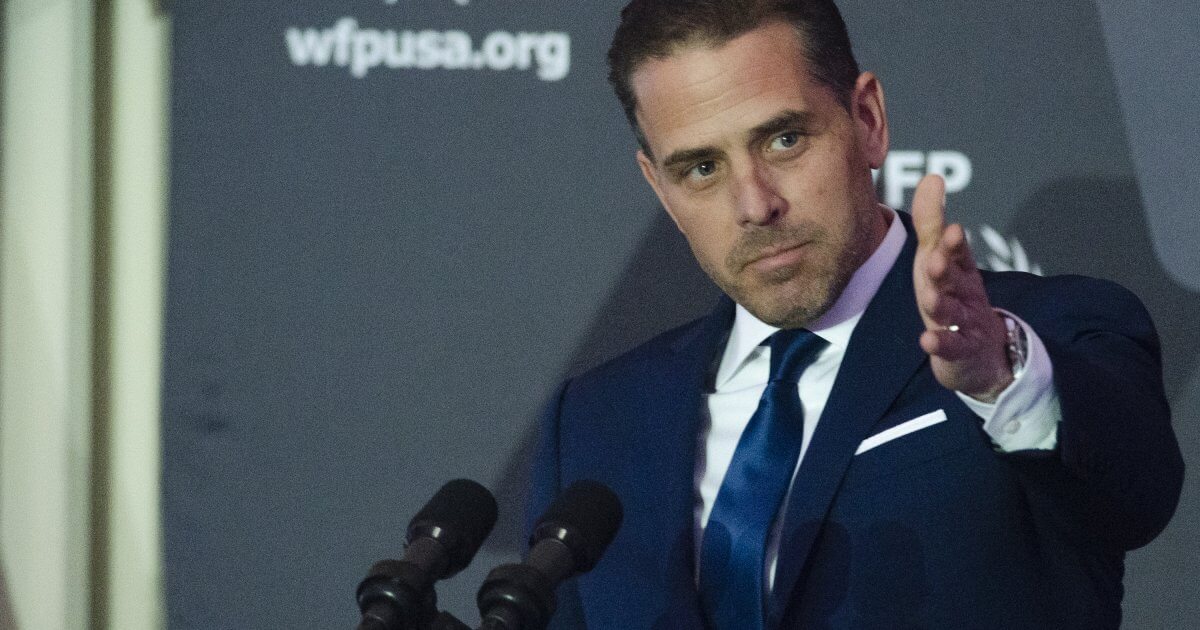Picking Up the Pieces
- Hunter Biden, 51, son of President Joe Biden, is releasing a brutally honest memoir chronicling his struggles with addiction and the pain he went through after losing his older brother Beau to glioblastoma, a type of brain cancer, in 2015 at 46 years old.
- Biden made a promise to his brother that he would stay strong and sober following his death; he failed. Years later, he’s finally keeping that promise.
- A leading brain researcher and neuro-oncologist says there is still hope with this highly aggressive disease, and urges patients to not automatically assume it’s a death sentence, despite its grim statistics.
Unfortunately, Hunter broke his promise. The next four years after Beau’s death resulted in him “stumbling, then sliding, then racing downhill.” His marriage to ex-wife Kathleen fell apart, and he went back into rehab. “I was drowning myself in alcohol,” Biden says. His father stepped in to try to help. “Left on my own, I’m certain I would not have survived,” the father of five writes.
After hitting rock bottom with frequent use of hard drugs, he got sober.
“I had no idea then how many dead-end detours I’d take before I could finally keep those promises,” he writes to Beau in the book. “I’ve survived, buddy, I know you were with me through it all.”
A Tragic Family History
The boys grew up close, almost exactly one year apart, as their birthdays fall on February 3 and 4. Their mother Neilia tragically died in a tragic car accident with their 1-year-old sister Naomi in 1972. Hunter, 2 at the time, and Beau, 3, survived. They were eventually blessed with a new sister, Ashley, now 39, when Joe remarried First Lady Jill Biden, who raised the boys like they were her own.
View this post on Instagram
Beau’s Cancer Battle
Beau Biden was diagnosed with glioblastoma in 2013, and underwent surgery, chemotherapy, and radiation for the disease. He was then able to go back to work as Delaware's Attorney General. Sadly, the father of two suffered a recurrence the following spring, and his health turned quickly. Prior to his diagnosis, in 2010, the Iraq War Veteran suffered from a stroke, which luckily had been mild. There is no evidence whether this was a symptom of his brain cancer or unrelated.
Glioblastomas are malignant tumors that come from astrocytesthe star-shaped cells that make up the supportive tissue of the brain. The cells of these tumors usually reproduce very quickly. Brain and central nervous system tumors kill about 15,000 people in the United States each year, according to Advanced Neurosurgery Associates. While we have seen some promise with other cancers due to earlier screenings and new treatments, death rates from glioblastoma have overall stayed the same.
Hope for Glioblastoma
Glioblastoma, also called GBM, is the most aggressive brain tumor in adults. Patients with GBM often have symptoms such as headaches, nausea, vomiting and sensory changes such as issues with balance or walking. Sometimes GBM can also cause seizures and other neurological defects. Many of the symptoms a GBM may cause often improve following treatment.
Despite the aggressive nature of GBM, the top brain researcher in the U.S. and neuro-oncologist at Duke University Medical Center, Dr. Henry Friedman tells SurvivorNet that there is still hope. "You are not dead just because you're diagnosed with a glioblastoma. So many people are told by their doctors or their institutions that they're at, 'I'm sorry, put your affairs in order and just move on.'"
Related: Can Cell Phones & 5G Cause Cancer? A Leading Brain Cancer Doctor Says "No"
This message of hope comes from the research Dr. Friedman and his colleagues at Duke University are doing on a new therapy that combines the modified poliovirus and immunotherapy.
"The modified poliovirus is used to treat this tumor, by injecting it directly into the tumor, through a catheter. It is designed to lyse the tumor and cause the tumor cells to basically break up," he tells SurvivorNet. The goal is that the modified poliovirus will then trigger the body's own immune system to attack and fight the cancer cells. Because the poliovirus is injected only into the tumor, the researchers hope the body's natural immune cells will only attack and kill the cancer cells and not affect the normal, healthy brain tissue.
When discussing the success of the poliovirus study, Dr. Friedman tells SurvivorNet that it has helped a large number of patients, but not enough. “We have a prolonged survival curve of about 18% going out many, many years in our initial trial,” he says. “We don't want to have 18%, 15%, 20% of people who are long-term survivors. We want them to be at a much higher number."
There is New Hope for Those Fighting Glioblastoma
A Patient with Inoperable Brain Tumor Will Do Whatever it Takes to Fight
Learn more about SurvivorNet's rigorous medical review process.


